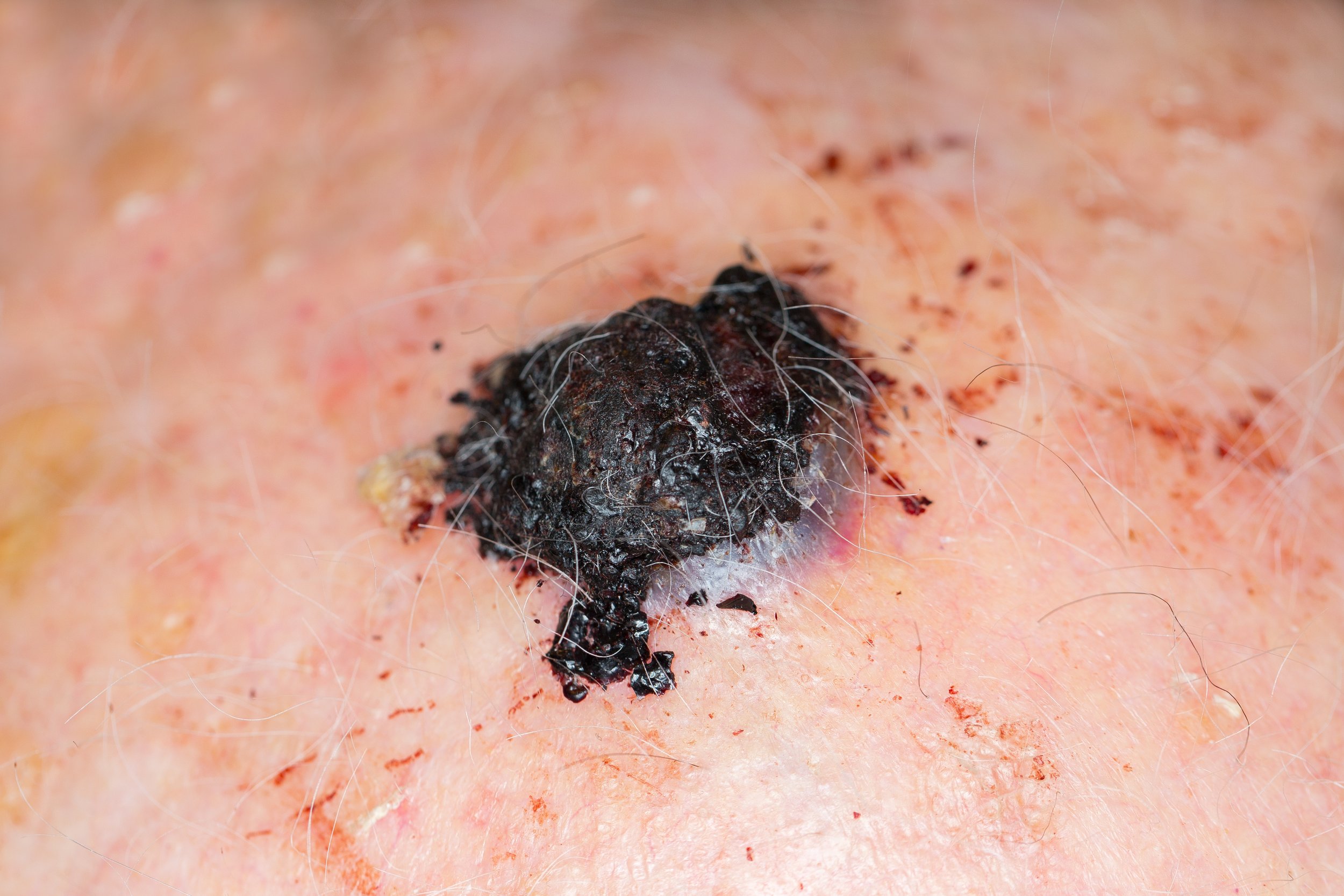
Types of Skin Cancer
Skin cancer is the most common type of cancer in the United States. Skin cancer rates are especially high in the Mesa, AZ, area due to the strong ultraviolet rays from the Arizona sun and the prevalence of fair-skinned individuals, who have a higher risk of many types of skin cancer, including basal cell carcinoma, squamous cell carcinoma, and melanoma.
When diagnosed and treated early, skin cancer is far less likely to lead to serious complications and death. Our board-certified dermatologists are experts in skin cancer prevention, screening, and treatment.
The most common types of skin cancer
Basal Cell Carcinoma (BCC)
Basal cell carcinoma is the most common type of skin cancer, typically appearing as a small, shiny bump or a red, scaly patch. It usually develops on areas of the skin that are exposed to the sun, such as the face, ears, and neck. Treatment options for basal cell carcinoma include:
Mohs surgery
Excisional surgery
Curettage and electrodesiccation (ED&C)
Cryotherapy (freezing)
Topical medications
Photodynamic therapy
Squamous Cell Carcinoma (SCC)
Squamous cell carcinoma often appears as a firm, red nodule or a flat sore with a scaly crust. It generally develops on sun-exposed areas of the skin, but can occur anywhere, including mucous membranes and scars. Treatment options for squamous cell carcinoma include:
Mohs surgery
Excisional surgery
Curettage and electrodesiccation (ED&C)
Cryotherapy
Topical medications
Photodynamic therapy
Melanoma
Melanoma is less common than basal cell carcinoma and squamous cell carcinoma but is more aggressive and can metastasize if not treated early. It often appears as an asymmetrical mole with irregular borders and varying colors. Melanoma can develop anywhere on the skin, including areas not exposed to the sun. Treatment options for melanoma include:
Surgical excision
Mohs surgery (for select cases)
Lymph node biopsy and dissection (for cases with lymph node involvement)
Immunotherapy
Targeted therapy
Chemotherapy
Radiation therapy
Treatment recommendations for skin cancer depend on various factors, including the type, size, location, and stage of the cancer, as well as the individual's overall health and preferences. If you are diagnosed with skin cancer, our providers can discuss treatment options with you and determine the most appropriate treatment plan for your specific situation. Early detection and treatment are crucial for the successful management of skin cancer and improving outcomes.



